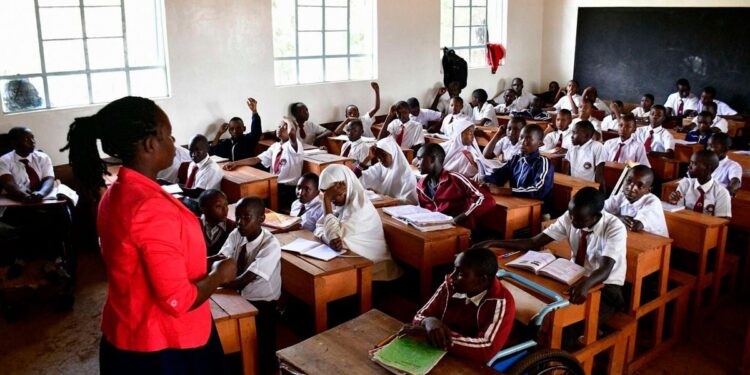Kenya has allocated Sh390 billion annually to the Teachers Service Commission (TSC) for teacher employment, marking a significant and timely investment in the education sector. This consistent allocation reflects a deliberate national strategy to strengthen foundational systems by prioritizing the recruitment and retention of educators. As the country’s population grows and the demands of modern education evolve, this move offers both immediate relief to a strained system and a long-term blueprint for sustainable development.
The short-term benefits of this allocation are already becoming apparent. Thousands of trained teachers who have been awaiting employment now have renewed hope. The deployment of more educators will directly reduce overcrowded classrooms, address the rising student-teacher ratio, and ensure that learners across Kenya particularly in marginalized regions receive the focused attention they deserve. Treasury Cabinet Secretary John Mbadi, speaking during the 35th graduation ceremony of Migori Teachers Training College (TTC), noted that the country was on the right economic path and emphasized that the government remains committed to strengthening education through increased funding and teacher employment.
Additionally, the government has allocated Sh1 billion to support the promotion of over 25,000 teachers across various grades. These promotions are not merely administrative adjustments they are essential tools of motivation, recognition, and retention. By acknowledging the service and growth of educators, the TSC ensures that teachers remain committed and enthusiastic in their profession, ultimately translating to better learning experiences for students. Although the promotion process has faced criticism particularly over the regional quota system this large-scale career progression marks a step forward in professionalizing and valuing the teaching workforce.
Long-term, the benefits of this sustained investment are profound. Education is the bedrock of any progressive society, and the success of Kenya’s Competency-Based Curriculum (CBC) depends heavily on the strength of its teaching force. The CBC, lauded by both CS Mbadi and Migori TTC Chief Principal John Chivile, emphasizes practical skills, innovation, and learner-centric methodologies. For this model to thrive, teachers must be well-prepared and well-supported. The 648 graduates from Migori TTC, specially trained to deliver the CBC curriculum, are a testament to Kenya’s readiness to deliver a modern, responsive education system.
The Sh96 billion earmarked annually for capitation across primary, junior, and senior secondary levels further underlines a holistic commitment to education. These funds not only keep learners in school by easing financial burdens on families, but they also enable institutions to offer better facilities, learning materials, and support services. Together with improved teacher deployment, this ensures quality learning outcomes across all levels.
Moreover, calls for more bursaries and scholarships for teacher trainees; particularly through NG-CDF and national government support highlight the need for inclusivity. No capable student should be denied access to teacher training due to financial hardship. Strengthening institutions like Migori TTC, which posted a remarkable 96% pass rate and ranks among the top three in national assessments, will secure a pipeline of competent educators essential for Kenya’s future.
While stakeholders such as the Kenya Secondary School Heads Association (KESSHA) have raised valid concerns about the fairness of the promotion criteria, the solution lies in refining and not abandoning the system. Balancing meritocracy with equitable regional representation is achievable through consultative and transparent frameworks.
In sum, Kenya’s substantial and strategic funding for the education sector signals a national recognition of teachers as nation-builders. The immediate impact which includes more jobs, better morale, improved learner outcomes is critical. But even more important is the long-term vision: a well-educated, skilled generation equipped to lead the country into a competitive, inclusive, and innovative future.
Kenya’s foreign exchange reserves have climbed to a historic high of nearly $10.59 billion, according to the latest financial markets bulletin released by the Central Bank of Kenya...
Read moreDetails









